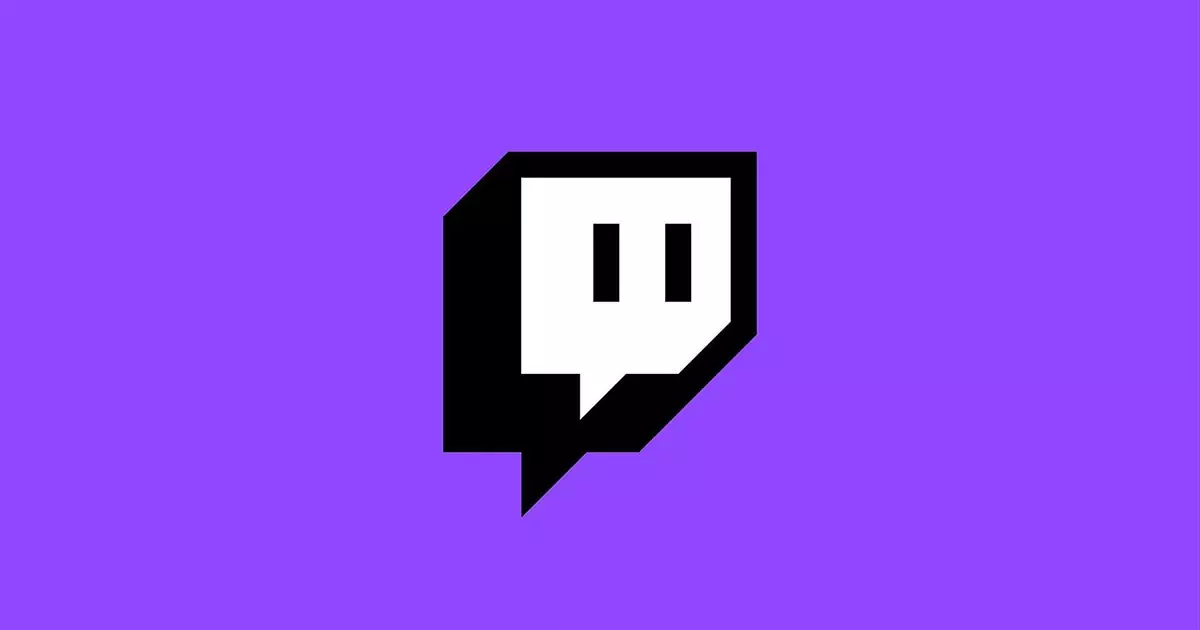In a striking reminder of how online platforms navigate the turbulent waters of free speech and hate speech, Twitch’s recent suspension of popular streamer Asmongold, whose real name is Zack Hoyt, has ignited intense debate. Asmongold received a two-week ban after making incendiary remarks about the ongoing conflict in Gaza, where Israel’s military actions have been widely condemned. The commentary surrounding this issue is multifaceted and complex, raising questions about accountability, responsibility, and the standards upheld by Twitch as a web-based community space for millions.
As reported by eSports journalist Rod Breslau, the ban seems to be a mere slap on the wrist, considering the gravity of Asmongold’s claims, which bordered on the genocidal in their language. In an era where streaming platforms have become central to public discourse, the severity of corporate responses to hate speech can often feel insufficient. This raises an important question: how effective are such temporary bans in the long term?
To understand the implications of Asmongold’s statements, it is vital to grasp the broader socio-political context. The conflict between Israel and Palestine has a deep historical background, encompassing decades of violence and suffering on both sides. The escalation in October 2023, where Hamas’s incursion into Israel led to significant casualties, was met with a military response from Israel that has claimed tens of thousands of Palestinian lives. Amid this brutal conflict, the framing of narratives is crucial, as it can shape public perception and incite further violence.
Earlier this year, United Nations entities asserted that Israel’s actions could qualify as genocide. In this murky landscape, Asmongold’s assertion that certain cultural values inherent in Palestinian society justify extreme measures—including genocide—reflects a dangerous trend in online dialogue that dehumanizes entire groups based on religious or cultural affiliations.
Twitch, much like other major platforms, has community guidelines that explicitly prohibit hate speech motivated by prejudice or intolerance. Asmongold’s utterances, which combine sweeping generalizations with derogatory statements about Islam and Palestinian culture, present a clear violation of these policies. His comments not only offend a vast array of cultural and religious sentiments but also resonate with an alarming history of framing minority groups as fundamentally ‘other’ and inferior.
The ramifications of this language are profound. When a streamer with a massive following makes derogatory, sweeping statements, the potential to normalize hate is real. As discussed by various commentators, including fellow streamer TipsOutBaby, such rhetoric fosters a culture of calculated dehumanization, laying the groundwork for societal acceptance of violence against those deemed different.
As news of Asmongold’s statements circulated widely, outrage erupted across social media platforms. Many viewers and fellow content creators voiced their displeasure, leading to a flurry of complaints against the streamer. This backlash also sparked conversations about the responsibilities of influencers in shaping public discourse. In response to the growing criticism, Asmongold issued a public apology, acknowledging that his earlier remarks were inappropriate and regressive. However, one must question the sincerity of an apology that follows the backlash rather than an introspective critique of self.
Asmongold’s reflection on his comments, while seemingly affecting, raises doubts about the immediacy of his understanding of the weight of his words. The effectiveness of his apology hinges on whether such a statement was genuinely heartfelt or simply a response to the potential backlash from a dissatisfied audience.
The incident involving Asmongold encapsulates a critical moment in the broader dialogue surrounding hate speech and social responsibility within digital platforms. As Twitch continues to thrive as a significant online venue for discussion and entertainment, the role of streamers as influencers cannot be understated. They hold the power to shape audiences’ beliefs and opinions, emphasizing the need for platforms to foster healthy dialogues that respect individual dignity.
The challenge Twitch faces is balancing the weight of accountability with the tenets of free speech. While a two-week suspension might serve as a form of punishment, it raises fundamental questions about what constitutes meaningful enforcement of community standards. As the boundaries of acceptable discourse continue to evolve, and as users demand accountability from popular figures, platforms must grapple with their roles in mediating these conversations.
As the landscape of digital interaction continues to mature, the incident involving Asmongold serves as a stark reminder of the power of words and their potential consequences. Dialogue must transcend mere opinion and move toward a more nuanced understanding of the societies in which we live. Serious discussions about sensitive topics should aim to foster empathy and understanding rather than division and hatred. Going forward, both content creators and platforms have the responsibility not just to abide by community guidelines but to engage thoughtfully with the world around them, ensuring that their discourse contributes to a just and peaceful public dialogue.


Leave a Reply